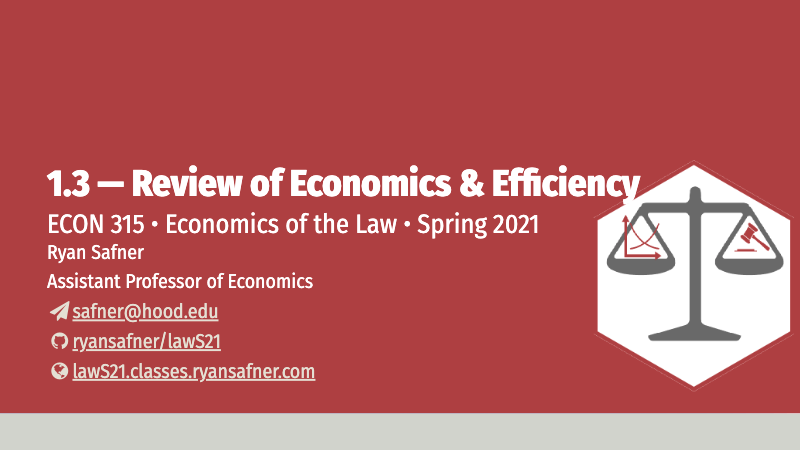1.3 — Review of Economics & Efficiency — Class Content
Contents
Tuesday, February 9, 2021
Overview
Today we essentially review the basic tools of microeconomics with a focus on economic efficiency — its definitions, why markets and consensual exchange are efficient, as well as what can give rise to inefficiencies. This will help us next class when we discuss whether the law should be efficient.
Readings
- Ch. 2 in Cooter and Ulen, 2012, Law & Economics
- Ch. 2 in Friedman, 2000, Law’s Order
- SMBC: Super Efficient
The textbook covers a full review of intermediate microeconomics — utility maximization, supply and demand, perfect competition, monopoly, game theory, choice under risk, informational problems — in Chapter 2. It’s unlikely we’ll need all of it (now), but it will be helpful to refer back to.
Friedman, as usual, provides a great discussion of efficiency (he prefers a “Marshallian” view of efficiency as opposed to Pareto or Kaldor-Hicks) and also launches into a discussion about whether law should be efficient, which will be more relevant next class.
